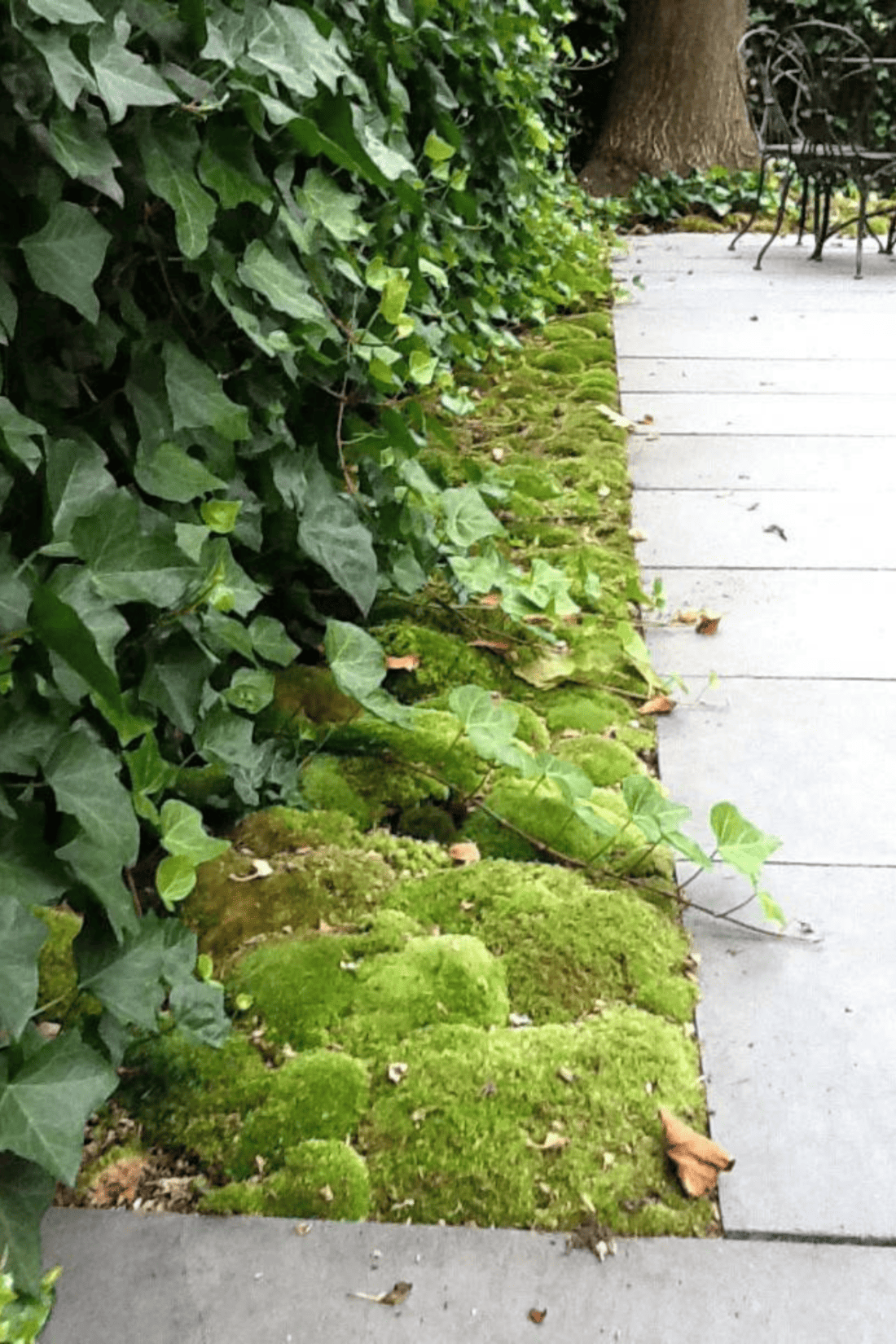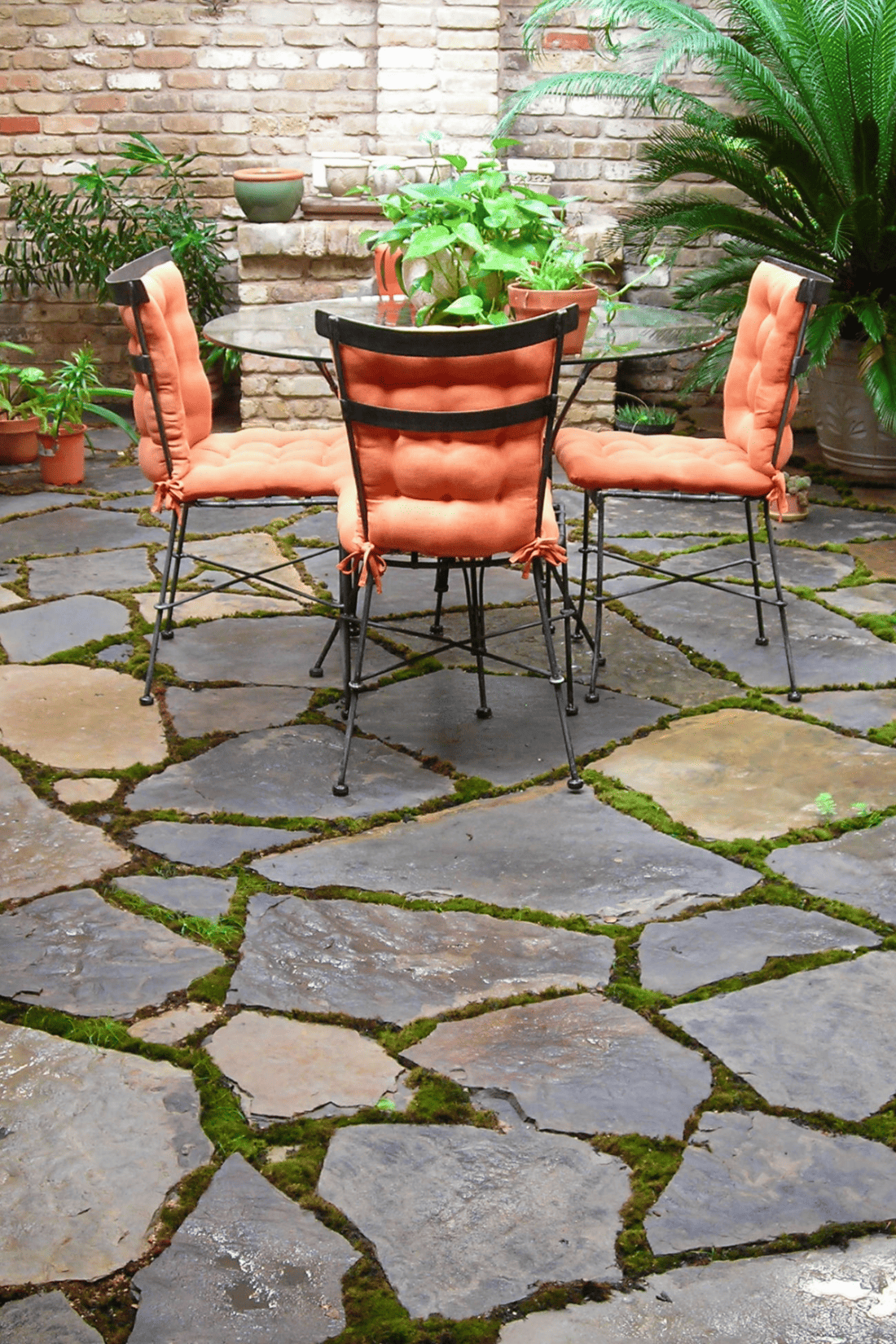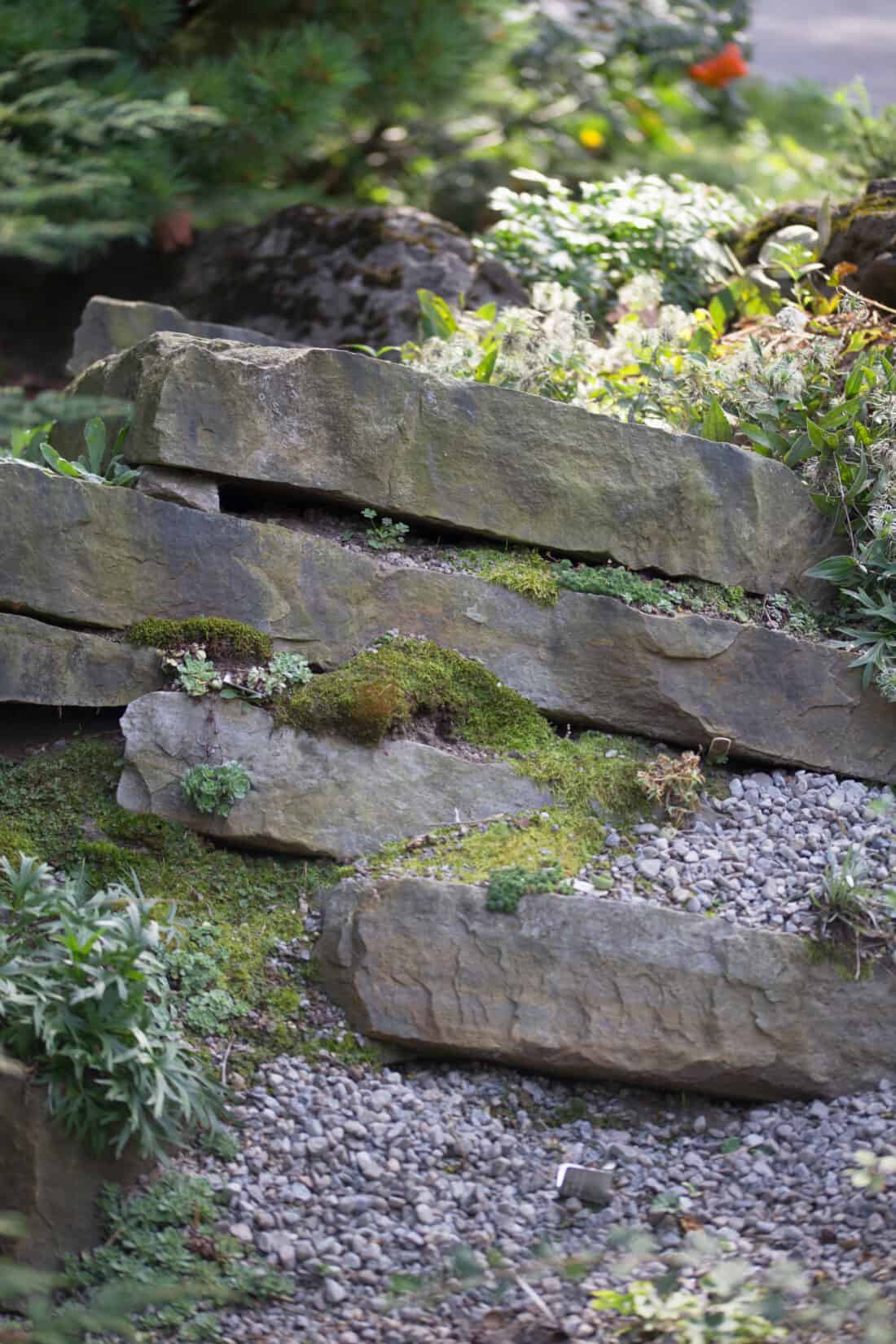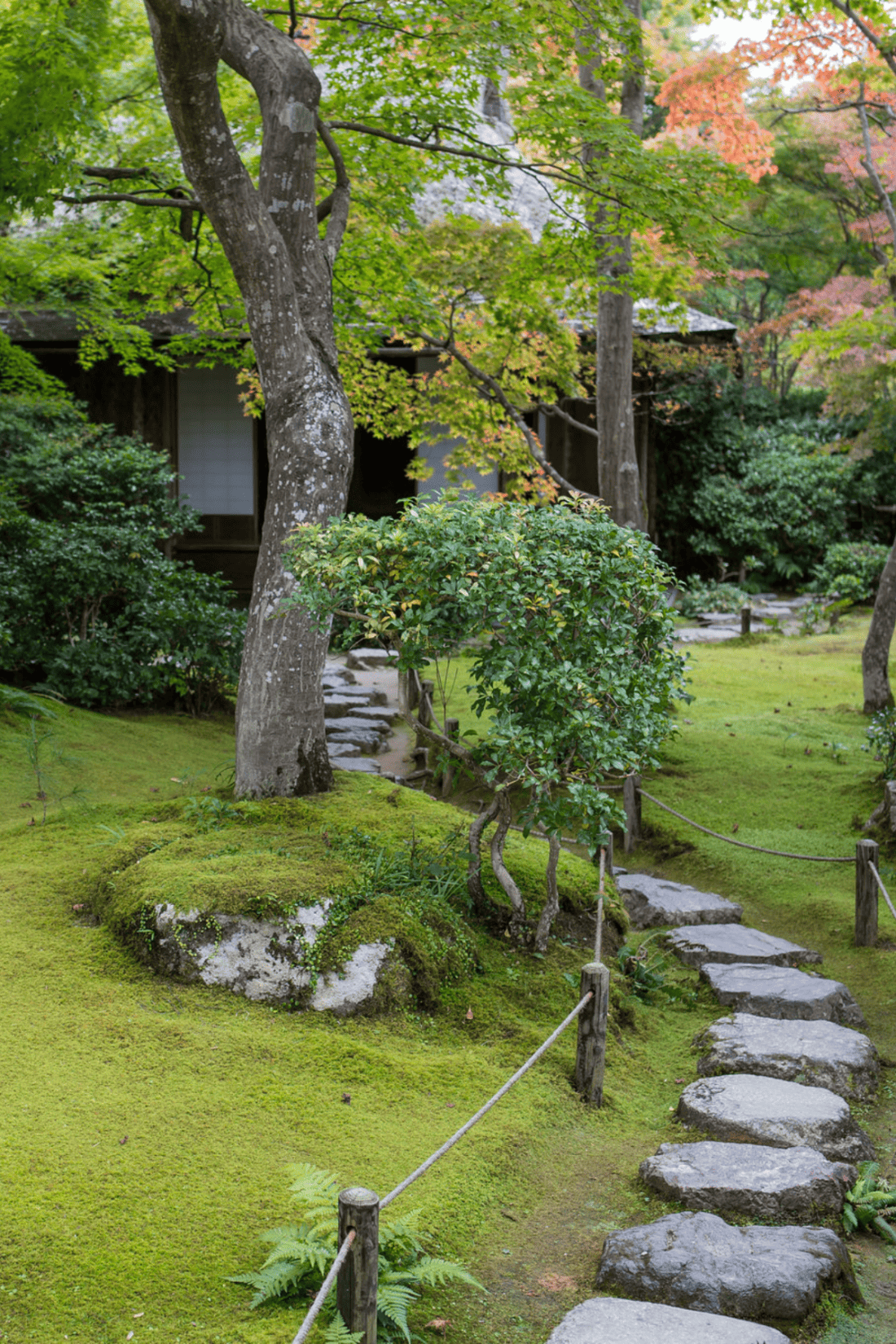I have a new project at a modern home built on a huge outcrop of Puddingstone in Brookline (a neighborhood just outside of central Boston). (If you are wondering what pudding stone is – don’t worry – I’ll come back to that).
The property is unique and interesting with the house being built over many levels to follow the shape of the rock outcrop that it sits above. I’m hoping the landscape that we are developing will be the same.
Because there is really little topsoil to work with, and moss seems happy to grow naturally, we are working to make the moss even more of a feature.
Moss Acres Nursery – A Moss Garden Designer’s Resource
In working out our plans at the property, I discovered Moss Acres – they are a leading nursery in the United States for all things related to the magical world of moss gardening. They are answering all my questions about types of moss, moss growth, and the easiest way to get happy moss growing in this less-than-perfect (but perhaps completely perfect – for moss) garden space. They are my go-to source for everything I need to know about garden moss and creating a moss garden.
I have been perusing the projects that they have been involved with, and a few of them are so inspiring. Aren’t these beautiful?

The best part about moss is that it needs little care, and when without water, it doesn’t really die; it just changes color but then springs back with a little rain. It really is quite a good ‘green’ alternative to grass (lame pun intended).



About Puddingstone
It is unlikely that you have ever come across it in the wild. At least, it seems statistically unlikely. According to Wikipedia, it only occurs in a handful of places around the world (One in England, Another in France, one in upper Michigan and Canada, Another in New Jersey/ New York, and one in North Dakota. – The Roxbury Strain (outside of Boston) is one of them.
Puddingstone, also known as “plum-pudding stone,” is a type of sedimentary rock that is formed from a mixture of various sizes of rounded clasts (rock fragments or grains) cemented together. The name “puddingstone” comes from its resemblance to a traditional English Christmas pudding, where the larger rocks resemble the fruits in the pudding.
Puddingstones indicate past geological environments, such as riverbeds or beaches where the rounded and embedded rocks were formed. Then, something happened to create the other surrounding stone later. Puddingstone has always been popular in building and construction, but it is popular among collectors and as a decorative stone in landscaping. So for this garden – we just get lucky to have a whole hillside full of it. A good base for a moss garden.
Building Moss Gardens Update – 2023
I, once again, am kicking myself for not having taken pictures of that puddingstone garden project back then (the original part of this post was written in 2010). Truth is – it was one of those projects where the clients lost interest before they did anything more than a few planning meetings – and then I saw a for sale sign in front of the house. So there are no after pictures to share.
But – After a couple of years of trying to establish a grassy path on the west side garden of my own house, I’m giving up. It is too shady and too compacted. The path doesn’t actually need to have any sort of planted surface – but it is boring, and it doesn’t have much of a soul. It is deep, deep shade and needs a lot more planting, and I think that it could be a perfect spot for my own moss garden.
I’m back on the Moss Acres website – learning more about options. I’ve also been reading The Magical World of Moss Gardening by Annie Martin. Both are a big help.
I’ve learned more than I knew before (or at least more than I recall from my past foray into moss gardening). We have relatively acidic soil. It is not extreme – but apparently, moss really like soils with a low pH (acidic), so much so that you can buy wettable sulfur to lower the pH.
I already have a lot of moss on our property, and before we renovated (and improved the soil), we had a naturally occurring moss lawn already established on the east side of the house. We live on a very rocky ledge, and moss grows all around.

In general, we have a lot of leaf litter in our garden – but interestingly, on the west side of the house, there are two factors that make it less leafy. It is mostly under pines (I am curious if pine needles cause problems for moss gardens), but also, there is a prevailing wind that blows everything right past that side of the house. Moss gardens can be damaged by lots of leaf litter – so I am buoyed by the fact that this area is prime.
Installing moss is an easy DIY project. We are coming up with the ideal time to make moss transplants. The best time to plant and the easiest way to establish your own patch of moss is in late winter and early spring.
Choosing moss varieties
As I already mentioned, I have a very shady spot. In addition to the moss I can collect and transplant, I also plan to buy live moss. Moss Acres sells quite a few shade-loving mosses, including sheet moss (Hypnum imponens), mood moss (Dicranum Scoparium), cushion moss (Leucobryum glaucum), and Haircap moss (Polytrichum commune).
I love the look of moss, so I think I will explore all these varieties of moss and see how the experiments turn out. I also need something that will make good contact and can take light foot traffic. We walk the dog over it a few times a day. I suspect sheet moss for the center path will be the best option, with moss beds and other mossy companion plants around the edges. More updates to come.

And for what it is worth – this Japanese garden is a big source of inspiration for me. I’m not setting out to make a Japanese-style garden specifically – but I can’t deny the appeal of that moss lawn. I plan to use moss instead of grass to cover the soil surface, as well as roots and rocks. Plus, I already have four different varieties of Japanese maple planted there already.
If you’re interested in the environmental benefits of growing moss – visit this post – 19 Smart Reasons to Grow a Moss Lawn Instead of A Grass Lawn
The moss is so gorgeous. You feel like you would just like to lay down on it, so velvety! What about maintenance? Can you just sweep off the leaves, twigs etc that fall on it?
I think using a blower would be the best thing to use to keep it leaf clean…
Oh WOW! Thank you so much for posting this! I’ve been trying to come up with a new idea for my front yard for two years now, and picture #2 completely encapsulates the look I want! Thank you thank you!